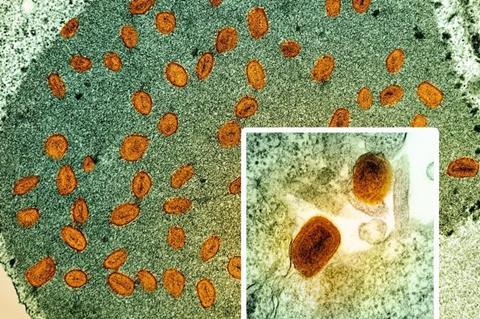As part of the U.S. government response to the current mpox outbreak, the National Institutes of Health’s (NIH) National Institute of Allergy and Infectious Diseases (NIAID) has released an update on its priorities for mpox research.

The NIAID mpox research agenda focuses on four key objectives: increasing knowledge about the biology of all clades—also known as strains—of the virus that causes mpox, including how the virus is transmitted and how people’s immune systems respond to it; evaluating dosing regimens of current vaccines to stretch the vaccine supply and developing novel vaccine concepts; advancing existing and novel treatments, including antivirals and monoclonal antibodies; and supporting strategies for detecting the virus to facilitate clinical care and epidemiological surveillance.
READ MORE: WHO declares mpox outbreak a public health emergency of international concern
The first human case of mpox was recorded in 1970 in the Democratic Republic of the Congo. The disease is endemic in central and western Africa. Two types of the virus that causes mpox have been identified: Clade I is endemic in Central Africa and can cause severe illness. Clade II, endemic in West Africa, tends to result in milder illness and caused the global mpox outbreak in 2022. People with compromised immune systems, children, and people who are pregnant are especially vulnerable to severe mpox regardless of the virus clade.
NIAID continues to collaborate closely with U.S. and international partners to reduce the impact of the current mpox outbreak and safeguard public health globally. NIAID will leverage both its domestic and international research infrastructures to achieve the Institute’s research objectives.
To find out more, visit NIAID Research Agenda for 2024 Mpox – September 2024 or view NIAID Director Jeanne M. Marrazzo, M.D., M.P.H. summarizing the priorities.







No comments yet